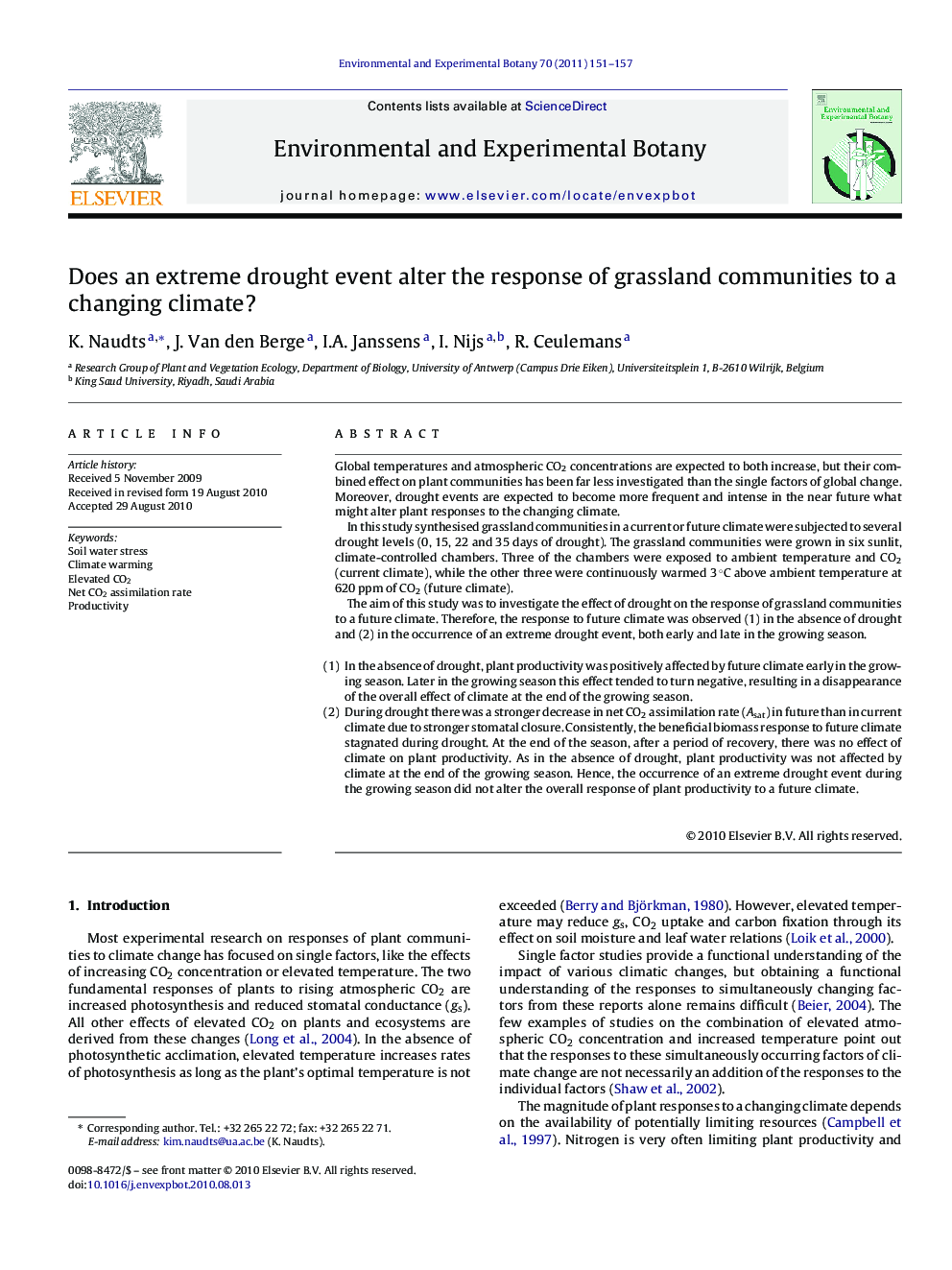| Article ID | Journal | Published Year | Pages | File Type |
|---|---|---|---|---|
| 4554925 | Environmental and Experimental Botany | 2011 | 7 Pages |
Global temperatures and atmospheric CO2 concentrations are expected to both increase, but their combined effect on plant communities has been far less investigated than the single factors of global change. Moreover, drought events are expected to become more frequent and intense in the near future what might alter plant responses to the changing climate.In this study synthesised grassland communities in a current or future climate were subjected to several drought levels (0, 15, 22 and 35 days of drought). The grassland communities were grown in six sunlit, climate-controlled chambers. Three of the chambers were exposed to ambient temperature and CO2 (current climate), while the other three were continuously warmed 3 °C above ambient temperature at 620 ppm of CO2 (future climate).The aim of this study was to investigate the effect of drought on the response of grassland communities to a future climate. Therefore, the response to future climate was observed (1) in the absence of drought and (2) in the occurrence of an extreme drought event, both early and late in the growing season.(1)In the absence of drought, plant productivity was positively affected by future climate early in the growing season. Later in the growing season this effect tended to turn negative, resulting in a disappearance of the overall effect of climate at the end of the growing season.(2)During drought there was a stronger decrease in net CO2 assimilation rate (Asat) in future than in current climate due to stronger stomatal closure. Consistently, the beneficial biomass response to future climate stagnated during drought. At the end of the season, after a period of recovery, there was no effect of climate on plant productivity. As in the absence of drought, plant productivity was not affected by climate at the end of the growing season. Hence, the occurrence of an extreme drought event during the growing season did not alter the overall response of plant productivity to a future climate.
Research highlights▶ Without drought Asat and productivity are stimulated by future climate early in the season. ▶ During drought stronger stomatal closure causes a stronger decrease in Asat in future than in current climate. ▶ Without drought productivity is not affected by climate at the end of the season. ▶ Drought does not affect productivity response to future climate at the end of the season.
